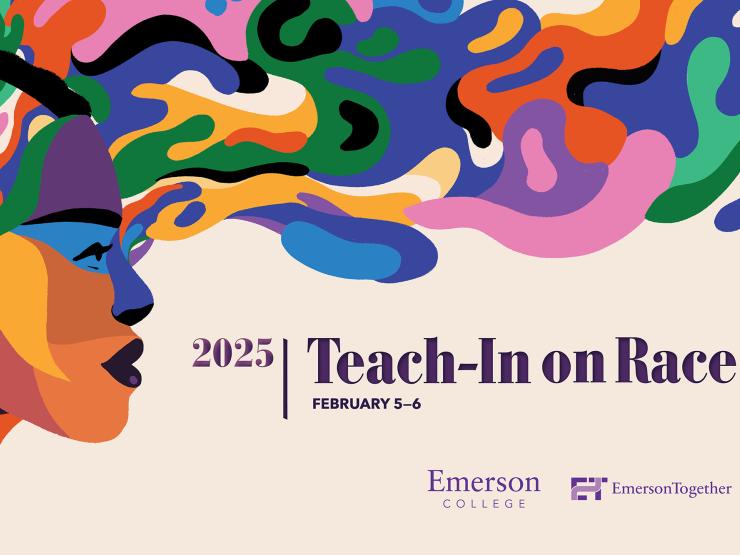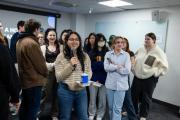2025 Teach-In: February 5 and 6
February 5–6, 2025, marks Emerson College's 9th Annual Teach-In on Race series. This signature campus event was established in 2016 to provide a forum in which students, staff, and faculty can come together to learn, question, dream, and share perspectives around intersectional matters of race and racism within higher education, professional realms of communication and the arts, and beyond.
The event’s sessions are designed to provide supportive spaces where the complexities of racial inequities, resistance, community-building, and critical awareness can be explored. It is our intention that Teach-In attendees will leave being more informed and motivated to effect positive changes in the pursuit of a more just and equitable future. Emerson's Office of Internationalization and Equity curates this event with support from the Offices of the President, Academic Affairs, Vice President for Equity and Social Justice, and EmersonTogether.
The goals of the Teach-In are:
- To enhance student, faculty, and staff understanding of race, both historically and currently, through participation;
- To build capacity on campus for communicating about matters of race, ethnicity, and identity;
- To enhance a campus climate that supports students, faculty, and staff of color;
- To help the Emerson community engage around issues of race and racism and generate actions that address race relations on this campus and beyond.


